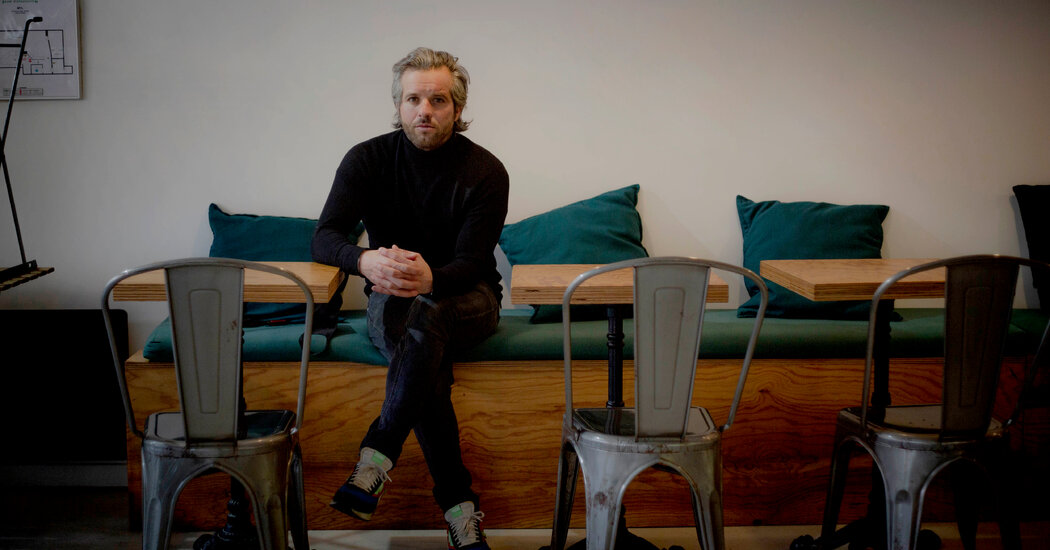
European bankruptcies are declining. That might be a problem.
PARIS – The Roman Rosier Café is now supposed to be bankrupt.
Since the coronavirus hit last spring, sales at the once-crowded lunch place in northern Paris have fallen 80 percent. The only customers on the last day were two UberEats couriers and a bunch of people who spaced apart at the counter, ordering fast food.
“We are at the gates of death,” said Mr. Rozier, realizing the 300 euros ($ 365) he earned from his lunch shift, which is much less than the 1,200 euros he used to withdraw. It is because of financial aid. “
France and other European countries are spending huge sums to keep companies afloat during the worst recession since World War Two. But some worry that they have gone too far. Bankruptcies are dropping to levels not seen in decades.
While aid has prevented unemployment from rising, the endowment risks turning sectors of the economy into a kind of twilight as companies are inundated with debts that they cannot pay but only receive enough state aid to survive – the so-called zombie companies. Unable to invest or innovate, these companies can contribute to what World Bank It was recently described as a potential “lost decade” of stagnant economic growth brought on by the pandemic.
“We need to give up all of these subsidies at some point – otherwise we will have a zombie economy,” said Carl Bild, co-chair of the European Council on Foreign Relations and a former prime minister of Sweden.
Bankruptcy cases fell 40 percent last year in France And the Britain, And decreased by 25 percent on average in European Union. Without government intervention, including billions in state-backed loans and subsidized payroll, the failure of European companies would have occurred. Almost doubled Last year, according to a study by the National Bureau of Economic Research, a private American organization.
In the Paris Commercial Court, Judge Patrick Cobode, who has handled bankruptcy cases for nearly a decade, sees the difference. “I have less than a third of the people who come to me, because many ailing companies are supported by the state,” he said, referring to the nearly empty marble halls of the court.
By contrast, Chapter 11 bankruptcy filings are in the US Has risen In the third quarter to the highest level since the 2010 financial crisis, a trend that is expected to continue into 2021, according to an index compiled by the American law firm Polsinelli.
President Biden has proposed a new $ 1.9 trillion Rescue package To combat the economic downturn and the Covid-19 crisis, last week, the government reported that 900,000 Americans had applied New unemployment claims.
These statistics constitute a debate over whether Europe’s strategy to protect companies and workers “at all costs” will support the recovery, or leave economies less competitive and more dependent on government aid when the pandemic subsides.
“Only parts of the misery have been postponed,” said Bert Cullen, chief economist for the euro area at Dutch ING Bank. He added that there would be “compensation in cases of bankruptcy” and an increase in unemployment whenever the support measures were withdrawn.
Analysts say government programs are already wasting the economy with thousands of ineffective companies with low productivity, high debt and a high potential for default once low interest rates return to normal.
An estimated 10 percent of companies in France have been rescued from bankruptcy due to government funds, according to Rexecode, a French economic research center.
Geoffrey Franks, the IMF’s chief of mission to France, said letting unsustainable companies collapse, while painful, would be essential to allow competitive sectors to flourish.
He said the wave of bankruptcy “is not necessarily a very bad thing.” “It is part of the normal creative process of destruction to regenerate economies.”
The Organization for Economic Cooperation and Development is urging governments to adjust their support measures to ensure the recovery of growth. “Failure to do so could hinder the recovery by trapping resources in unproductive zombie businesses and jobs,” the organization said in a recent assessment.
Most European governments planned to end subsidies last fall, believing that the Corona virus would be under control. But a second wave of cases filled hospitals, followed by different types of the virus spreading faster, all of which led to the extension of aid. European Union late last year Agreed A € 2 trillion redemption package.
In France, investments are seen as a way to buy social stability by preventing mass unemployment. Finance Minister Bruno Le Maire has pledged to maintain subsidies “as long as the crisis continues,” a strategy he described as adding “spirituality” to the economy.
Almost no company is left out of generosity if it pushes hard enough – not even the French escargot growers, who recently won a battle for limited financial aid while restaurants that are their primary buyers remain closed.
As Covid governments’ debt rises, European fiscal rules Has been suspended. France is among several countries that have announced that they do not plan to pay the huge bill until the economy recovers.
For now, the financial aid is preventing the collapse of many previously healthy businesses that have had the worst luck with the pandemic. In the Paris Commercial Court, Judge Cobo said the measures helped avoid the domino effect by encouraging companies to use state-backed loans and other aid to pay off suppliers and debt.
The bankruptcy system in France differs from its counterpart in other countries, in that it encourages troubled companies to file before default and provides assistance in negotiating with creditors.
“Failure is not a word the French like to use,” said Dominic Paul Valle, the judge in the court responsible for helping business owners avoid bankruptcy. “We’d rather say we’re saving companies.” He added that there had been a sharp increase in the number of companies turning to him for help.
The companies that filed for bankruptcy protection in 2020 tend to be large firms with a large workforce, such as the retailer Camaïeu, which employs 3,900 workers, and Alinea, a furniture manufacturer with 2,000 employees. This was a shift from the small and medium-sized business cases that the court usually hears.
However, the safety net is only extended so far. Countless companies face mounting debt, declining profitability and limited ability to invest the longer the pandemic continues.
Mr. Rozier is a case in point. The organic themed café, Make Your Lunch, started in 2016 in a busy commercial and cultural district. The concept was so successful that it opened a second café near the very crowded Paris Opera.
After the outbreak of the epidemic, businesses declined as offices that housed thousands of workers were vacant and largely empty for most of the year.
The government helped pay the bulk of his employees’ salaries, and Mr. Rozier took out a state-backed loan of 30,000 euros at low interest with deferred payments until May, which the government extended last week for a year. After a new national shutdown in October, restaurants like his got an additional 10,000 euros a month as direct assistance.
But that money didn’t make up for months of lost sales. “Our treasury is depleted,” said Mr. Rozier, who sold his café near the opera in the summer and spent most of the government loan repaying suppliers. With 80 percent fewer customers, he’s three months behind his monthly rent of 4,000 euros, and he’s struggling to pay Social Security taxes, electricity and other expenses.
The government allows restaurants to serve only fast food. Mr Rozier has become an informal spokesperson for restaurant owners who are demanding that the government allow them to seat patrons again, with social distancing, in order to survive.
He said that after the New Year holidays, his spirits were in decline when he reopened the business.
“I waited. I waited. Three people entered through the door,” said Mr. Rozier.
He continued, “At this stage, there is a real risk that I will be forced to close within two months.” “I’d rather sell the company than go to bankruptcy court.”
Two of his friends, who are also restaurant owners, have filed for bankruptcy.
“There is a lot that will follow,” said Mr. Rozier. “This is what we know for sure.”
Antonella Franchini contributed to the report.

“Analist. Schepper. Zombiefanaat. Fervente reisjunkie. Popcultuurexpert. Alcoholfan.”
